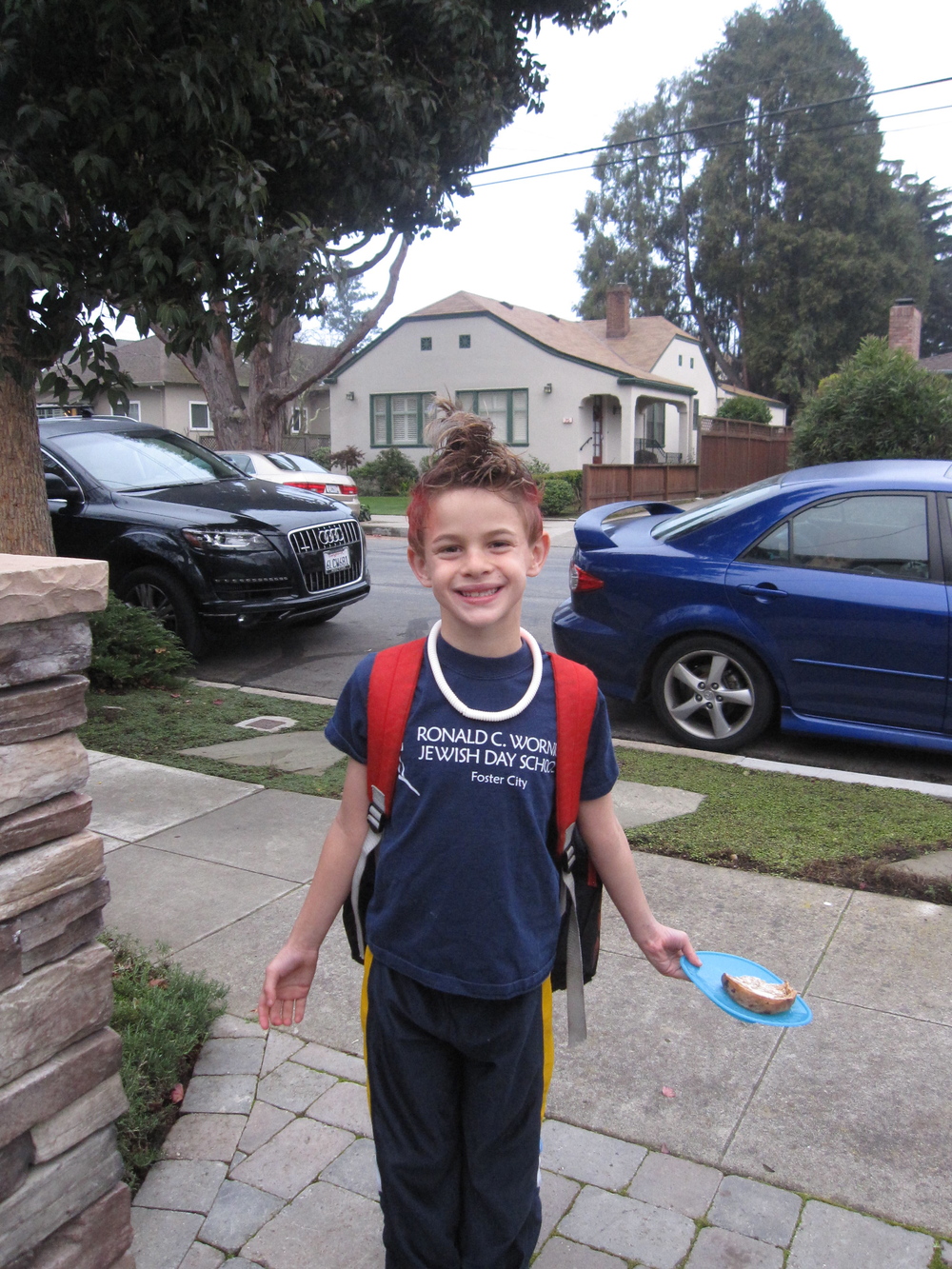My tips for managing 7-year-old boy outbursts
 My son is bright, athletic and unfortunately, quick tempered with the tendency to react physically. He runs away. He’ll hit someone. Sometimes he’ll curse (which is actually an improvement, but still not appropriate). We’re working with his school to help him develop the emotional maturity to express anger and frustration rather than act on it. We know that by the time he’s nine, it’ll be better. But he’s seven and it wasn’t a big surprise when the sleepaway camp sent an email that he was having some “behavior issues”. Most impressive was that they asked for strategies to help him succeed.
My son is bright, athletic and unfortunately, quick tempered with the tendency to react physically. He runs away. He’ll hit someone. Sometimes he’ll curse (which is actually an improvement, but still not appropriate). We’re working with his school to help him develop the emotional maturity to express anger and frustration rather than act on it. We know that by the time he’s nine, it’ll be better. But he’s seven and it wasn’t a big surprise when the sleepaway camp sent an email that he was having some “behavior issues”. Most impressive was that they asked for strategies to help him succeed.
My son isn’t particularly unique – his emotional development is normal. Average. Unimpressive, but not clinically delayed or anything. And the motherhood manual doesn’t include strategies to help a little boy react older than he is. So – here’s my addendum to the motherhood manual – my top ten tricks for managing a 7-year-old boy.
- Create a meaningful reward chart
Tried and true, goal oriented boys like to have a target to reach. Create a reward chart for the bunk, group, siblings or class so that they can support each other. Make tasks that they need to do together in order to succeed. Make the reward something they really like – a pizza party, ice cream social, extra baseball game.
- Put him on a team
Make the group a team. Find a way to get them to “score”. When they aren’t in the game, can they score by cheering for their friends? Who is the loudest cheering “team”? When they are waiting at the flagpole or before a meal, is there a game about finding the coolest cloud in the sky or the biggest leaf on a tree? They like to compete. Have them work together.
- Create and stick to a routine
Routines make children feel secure. They need to know what is going to happen and when – how long will they have to wait? When is the next game? Tell them the routine, try to make it consistent from day to day and if the routine involves time, give them a way to tell time (position of the sun or shadows is fun).
- Give him a job
Responsibility breeds self-respect. Each member of the bunk can have a job. They should know what their job is (line leader, bathroom inspector, laundry distributor, ball collector, game organizer, etc). Their job might aid in achieving the reward chart.
- Set expectations before the start of a game
Few boys will ever want to sit out of part of a game, even if they should. Explain up front that during the game, you may get called out and when you are called out, you need to go to the sidelines quickly and cheer. And then, when the game is over, we’ll start a new game and everyone can play. Except in a tournament when you are out for good. Then you cheer!
- Give him words to express his feelings
Boys often do not have an extensive emotional vocabulary and its important not to talk him out of his feelings. If he’s mad, let him be mad. Talk about how it feels to be mad and what made him mad. Then ask him what he can do about feeling mad. Until he decides he doesn’t feel mad anymore.
- Don’t let him idle/stand in line
Idle hands go wild. So – if there is waiting in line, give them something to do. Sing a waiting song…do pushups…strike a pose…climb a fence. Anything that keeps the hands active and not on each other.
- Give him someone/something to take care of
My son does especially well when he feels responsible for someone else’s well being. It could be the dog but it’s better if it’s another child. He’s an attentive friend and big brother if he’s needed. Pair boys up and give them the responsibility to help each other make good choices.
- Supervise especially in down time
Even though it might get mind-numbingly boring or infuriatingly irritating, you have to watch them and interfere if they cannot resolve a conflict. It’s a delicate balance between helicoptering and Lord of the Flies. But if a situation is escalating, try not to resolve it – just introduce new words to redirect it. - Give him a hug
He’s a little boy trying to act big. He needs a hug. A lot of hugs. He doesn’t know to ask for them – but he needs someone to wrap their arms around him and hold him tight for a few minutes so that he feels safe and loved.
What would you add to the manual? Any techniques work for you and your active boy?
